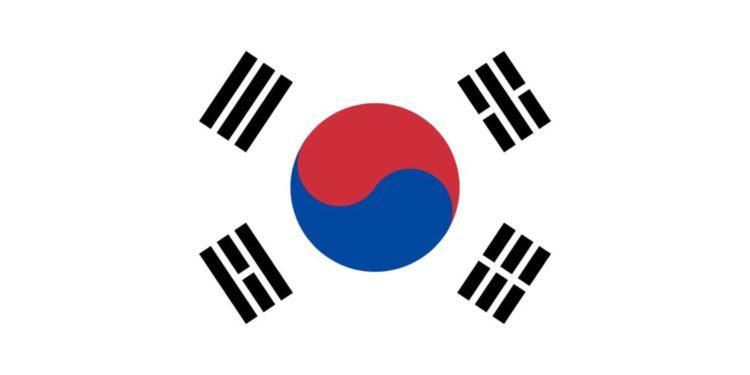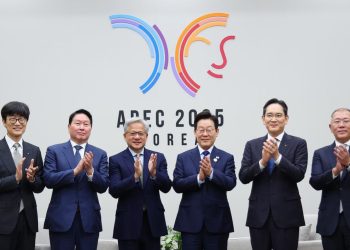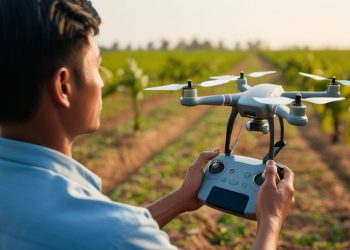The Korean government has designated 25.9 trillion won from the ‘next year budget plan’ for the national R&D (research and development) budget, constituting 3.94% of the total budget expenditure.
This allocation deviates from the previous policy of maintaining a 5% investment stance every year for the future. While some restructuring in the R&D budget is considered necessary due to the government’s ‘sound fiscal policy’, it contradicts the philosophy outlined in the science sector’s national tasks of sustaining the R&D budget at 5% of the total government expenditure.
The Korean government has unveiled plans to allocate substantial investments in research and development (R&D) to advance 12 strategic technologies. These technologies encompass advanced mobility, biology, secondary batteries, artificial intelligence (AI), robotics, hydrogen, nuclear power, aerospace and ocean engineering, quantum technology, next-generation communications, cybersecurity, semiconductors, and displays.
These sectors are critical battlegrounds for global technological supremacy. Furthermore, the ministry has identified and endorsed 16 related technologies that are integral to the success of these sectors, reflecting a concerted effort to secure a competitive edge on the global stage.
The overarching objective of these initiatives is to drive economic growth and improve the lives of citizens by efficiently executing national R&D projects and effectively commercializing the outcomes of R&D efforts.
One embodiment of this collaborative ethos is establishing the ‘Industrial Technology Research Association,’ a platform wherein diverse companies and institutions come together to collectively undertake R&D endeavors, illustrating a symbiotic relationship between the private sector and government support.
The Ministry of Science and ICT stated the significance of developing high-performance, energy-efficient semiconductors as a pivotal element in upholding Korea’s global supremacy in chipmaking, particularly in the era of artificial intelligence (AI).
In tandem with semiconductor advancements, the government is directing its attention toward the display sector, advocating for exploring and creating novel screen technologies like flexible displays.
Furthermore, the Korean government is steadfastly committed to cultivating local developers and enterprises to spearhead the advancement of advanced mobility, a sector currently witnessing intense competition for technology development and economic security.
Regulatory frameworks like the US Inflation Reduction Act and Europe’s Carbon Border Adjustment Mechanism drive innovation in this field.
The concept of industrial technology research associations can be segmented into four distinct categories, contingent upon the level of government backing for technology and the size of the industrial ecosystem.
First, intensive government support can be channeled to secure technologies, including national strategic technologies in industries marked by large industrial scales like semiconductors and displays.
Second, the collaborative demonstration of new technologies can create new industries by forging connections between dissimilar sectors and supply chains.
Third, support can be extended to facilitate the commercialization and scaling-up of public technologies that align with private demand, particularly benefiting small and medium-sized enterprises (SMEs) that may lack technological capabilities.
Lastly, in domains where the foundation of an ecosystem is developing, such as quantum and nuclear fusion, technology startups can be nurtured through cooperative arrangements, paving the way for valuable value chains.
Consequently, corporate demand for this approach is on the rise, with an emphasis on R&D special zones. Noteworthy examples of such research associations include the ‘Water Industry Research Association’ established within the Daedeok Special Zone earlier this year and the ‘White Bio Circular Economy Research Association’ initiated within the Jiangso Special Zone in Seo-gu, Incheon.
These associations are actively formulating plans for large-scale value chain-oriented R&D projects and innovative demonstrations of new technology geared towards catalyzing future-oriented industries.
Read more from KoreaTechToday:
- South Korea’s Battle Against Technology Leaks: Strengthened Regulations and Penalties
- Government and Korean Tech Giants Join Hands to Launch Intelligent Home Initiative
- Egyptian Government Delegation Draws Inspiration from Pangyo Techno Valley’s Startup Success
- Ministry of Science and ICT Held a “Media Tech Open Lab” at Pangyo Global R&D Center in Seongnam, Gyeonggi Province, Connecting the Government with the Media/Content Industry







